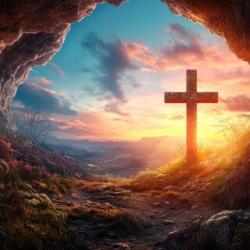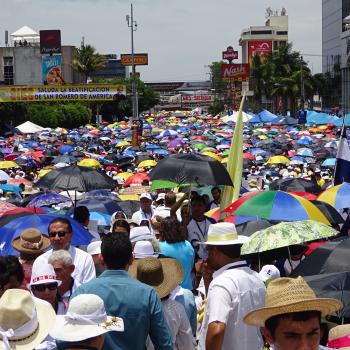This year we witnessed a multitude of events that invited our moral and ethical reflection about how we relate to each other in community, as a nation, or with other nations. America pulled its troops out of Iraq, Republican candidates for the presidency wrangled with each other for prominence and relevance, and the American national government came to a stand-still, prompting a downgrade in our credit rating by an agency that felt that it was going to be impossible for the legislative and executive branches to accomplish anything together. As important as these events were and are, I've chosen four other events to highlight for reflection as the most important of 2011.
The Occupy Movement
This international movement polarized us, confronting us with the very real fact that some people are tremendously rich, and that these people not only have wealth, power, and political influence, but have also been to blame in making those of us in the lower 99 percent demonstrably poorer through their financial risk-taking. In Say Anything (1989), Lloyd Dobler (John Cusack) speaks to the phenomenon of things like financial instruments, people selling put-together packages of debt with the hope of making a huge profit: "I don't want to sell anything, buy anything, or process anything as a career. I don't want to sell anything bought or processed, or buy anything sold or processed, or process anything sold, bought, or processed, or repair anything sold, bought, or processed." This year, that outrage at people who buy, sell, and process our financial lives boiled over into demonstrations in cities across the globe.
The Church of England had to wrestle with its response to the movement. The Occupy movement prompted violence in Wall Street and around the country against mostly-peaceful protesters, including this saddening account of a violent police response against a clergyman in supposedly laid-back Seattle. It ignited passion among a vast cross-section of Americans, even as it prompted some confusion among some of us too busy taking care of our families to occupy anything but the kitchen. What do these people want? What do they hope to accomplish?
That's harder to say. The Occupiers don't have a clear program. They don't have a legislative agenda. I think the heart of their message is, "This Is Not Okay. The way the world is, the fact that the rich and powerful don't have to play by the same rules, that the little people get stepped on, ignored, die in poverty. This Is Not Okay."
And in drawing attention to that fact, they've achieved higher approval ratings than any organized political movement around. Now polls show that more than three-fourths of us agree, and are now willing to say so out loud without the ridiculous words "class warfare" immediately being hurled at us. Theirs is a message that goes back to the Hebrew prophets, and that comes out of the mouth of Jesus: When the rich behave without justice and the poor suffer, This Is Not Okay.
The Death of Osama bin Laden
Over at the Huffington Post, I struggled with the public joy and rallies that erupted after American Special Forces flew into Pakistan and shot bin Laden—allegedly the worst mass-murderer of Americans in our history—in a protected compound in the small city of Abbottabad. Clearly, if he was guilty of all those things that he and world public opinion said he had done, he was a very bad man, and in some sense, I and other Americans would be a little safer if he were dead. Certainly the United States had been trying to bring him to justice for ten years.
But the cheering, the flag waving, and my own questions about the legality of political assassination made me wonder how I should feel. As a person of faith, I didn't believe I could celebrate his death, and thought that the violent death of any human being made in the image of God, whether that person was good, evil, or in between, ought to be lamented. Any impulse to the contrary came, I decided, either from secular narratives (we must protect our great nation) or from flawed sacred narratives (God has clear enemies and it is our job to kill them). Yet I also sympathized with those feeling relief. I am a father and partner, I travel frequently by air and rail, and I too hope that the world will be a little safer because one evil man is dead.





